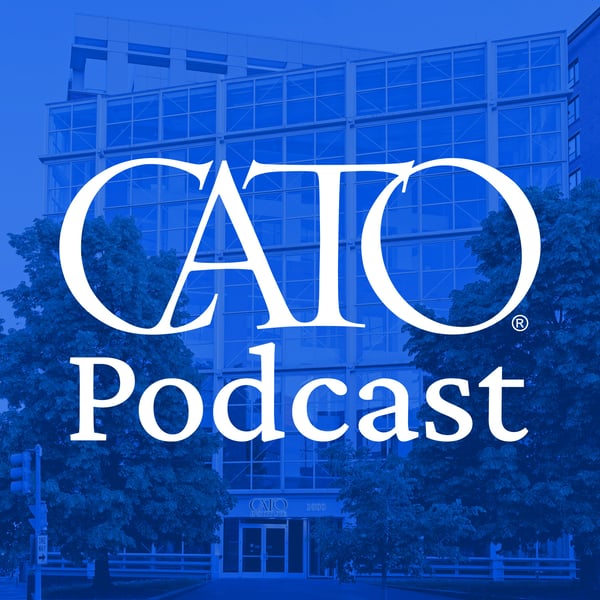Best of Cato Daily Podcast: What's the Benefit of Religious Charter Schools?
Cato Podcast
Cato Institute
4.6 • 949 Ratings
🗓️ 11 June 2025
⏱️ 20 minutes
🧾️ Download transcript
Summary
Caleb O. Brown hosted the Cato Daily Podcast for nearly 18 years, producing well over 4000 episodes. He has gone on to head Kentucky’s Bluegrass Institute. This is one among the best episodes produced in his tenure, selected by the host and listeners.
Religious charter schools may grow in the coming years, but it’s not clear what the benefits are to the schools or religious institutions that would run them. Neal McCluskey comments.
Hosted on Acast. See acast.com/privacy for more information.
Transcript
Click on a timestamp to play from that location
| 0:00.0 | This is longtime Cato Daily podcast host Caleb Brown. I've hosted the Cater Daily podcast for nearly 18 years, but no more. |
| 0:07.0 | But I wanted to leave loyal listeners with some favorite episodes that I hope ring true and relevant to our current moment. |
| 0:13.6 | This is one of them. Thank you for listening. |
| 0:17.3 | This is the Cater Daily podcast for Friday, June 9, 2003. I'm Caleb Brown. Oklahoma now is moving ahead with a charter school run by a religious organization. Charter schools are, of course, public schools. So how did we get to a point where something that would have been unthinkable just a few decades ago is now moving forward. |
| 0:41.6 | And what do religious groups believe they'll get out of submitting their own educational preferences to regulation from the state? |
| 0:45.1 | Kato's Neil McCluskey comments. |
| 0:47.1 | So the best place to begin, if we're going to talk about school choice, modern day, |
| 0:59.3 | charter schools and private school choice programs is about 1989, because there were 1989. |
| 1:03.3 | There really were no modern day school choice programs. |
| 1:06.1 | You had your town tuitioning in Vermont and Maine. |
| 1:10.9 | But there weren't any charter schools and there weren't any voucher programs. Later we get tax credit programs and education savings accounts, but the basic idea of |
| 1:15.3 | somehow publicly connected funding letting you go to a private school. |
| 1:19.3 | But in 1990, we basically had the beginning of both of these things, the first charter |
| 1:23.7 | schooling and the first voucher programs. |
| 1:26.3 | And what they represented was people largely based on |
| 1:32.3 | kind of academic outcomes measures, were kids learning to read, were they learning to do math? |
| 1:37.7 | And often did they just feel safe in their schools? This drove a school choice movement that we see really begin in 1990 of people |
| 1:47.9 | saying you've got to have alternatives to the school you're assigned to by your address. |
| 1:52.5 | Again, usually for pretty pragmatic reasons, either you didn't feel safe in your school |
| 1:56.6 | or you weren't learning the basics or both. |
| 1:59.4 | And they tended to be focused on helping low-income, usually urban communities. |
| 2:05.6 | Well, over time, we've seen, first of all, school choice grow a great deal, both charter schools and private school choice. |
... |
Please login to see the full transcript.
Disclaimer: The podcast and artwork embedded on this page are from Cato Institute, and are the property of its owner and not affiliated with or endorsed by Tapesearch.
Generated transcripts are the property of Cato Institute and are distributed freely under the Fair Use doctrine. Transcripts generated by Tapesearch are not guaranteed to be accurate.
Copyright © Tapesearch 2025.

